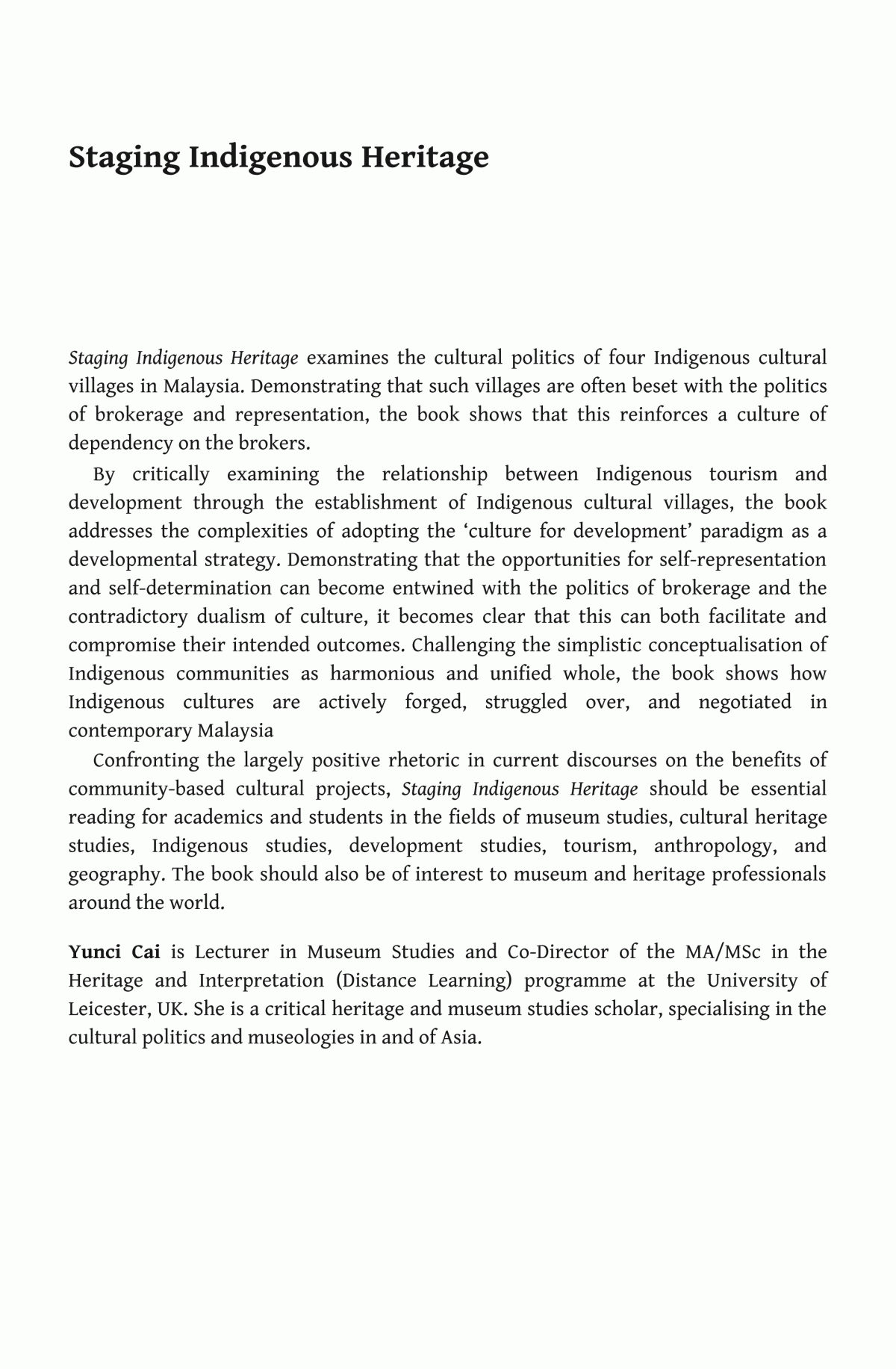

Most ebook files are in PDF format, so you can easily read them using various software such as Foxit Reader or directly on the Google Chrome browser.
Some ebook files are released by publishers in other formats such as .awz, .mobi, .epub, .fb2, etc. You may need to install specific software to read these formats on mobile/PC, such as Calibre.
Please read the tutorial at this link: https://ebookbell.com/faq
We offer FREE conversion to the popular formats you request; however, this may take some time. Therefore, right after payment, please email us, and we will try to provide the service as quickly as possible.
For some exceptional file formats or broken links (if any), please refrain from opening any disputes. Instead, email us first, and we will try to assist within a maximum of 6 hours.
EbookBell Team

4.8
34 reviewsStaging Indigenous Heritage examines the cultural politics of four Indigenous cultural villages in Malaysia. Demonstrating that such villages are often beset with the politics of brokerage and representation, the book shows that this reinforces a culture of dependency on the brokers.
By critically examining the relationship between Indigenous tourism and development through the establishment of Indigenous cultural villages, the book addresses the complexities of adopting the ‘culture for development’ paradigm as a developmental strategy. Demonstrating that the opportunities for self-representation and self-determination can become entwined with the politics of brokerage and the contradictory dualism of culture, it becomes clear that this can both facilitate and compromise their intended outcomes. Challenging the simplistic conceptualisation of Indigenous communities as harmonious and unified wholes, the book shows how Indigenous cultures are actively forged, struggled over, and negotiated in contemporary Malaysia.
Confronting the largely positive rhetoric in current discourses on the benefits of community-based cultural projects, Staging Indigenous Heritage should be essential reading for academics and students in the fields of museum studies, cultural heritage studies, Indigenous studies, development studies, tourism, anthropology, and geography. The book should also be of interest to museum and heritage professionals around the world.